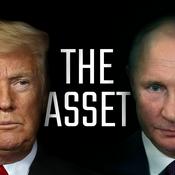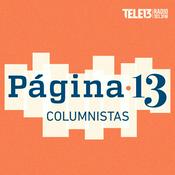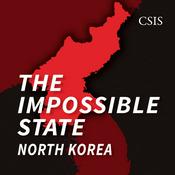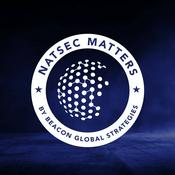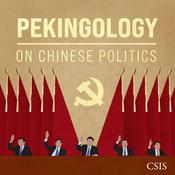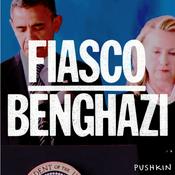Available Episodes
5 of 130
- 采矿以促进变革: 奥伯特·博尔 (Obert Bore) 谈津巴布韦矿业繁荣中的人权与发展 (Mining for Change: Obert Bore on Human Rights and Development Amid Zimbabwe’s Mineral Boom)在本期节目中,ECSP的克莱尔·多伊尔(Claire Doyle)和威尔逊中心中国环境论坛的阮叶芬(Jennifer Nguyen)将与奥伯特·博尔(Obert Bore)共同探讨津巴布韦矿业有关的一些问题。 奥伯特是津巴布韦环境法协会(Zimbabwe Environmental Law Association)的商业与人权项目的负责人,并是国际贸易、中国在非洲的投资以及自然资源治理方面的专家。 他在推动政策改革,加强受采矿影响社区的人权保护方面一直作为领袖 在这次对话中,奥伯特介绍了津巴布韦的重要矿产部门,也强调了近来的重要矿产投资以及与之相关的一些环境和社会挑战。 他还分享了一些战略和建议,以促进可持续和负责任的采矿实践,同时确保津巴布韦矿产行业的扩张成为发展的机遇。 English Description: (In this episode, ECSP's Claire Doyle and Jennifer Nguyen from the Wilson Center's China Environment Forum are joined by Obert Bore. Obert, who serves as the Business & Human Rights Program Lead at the Zimbabwe Environmental Law Association, is an expert in international trade, Chinese investments in Africa, and natural resource governance. He has been a leader in advancing policy reforms to strengthen human rights protection for communities impacted by mining. In this conversation, Obert sheds light on the critical mineral sector in Zimbabwe, highlighting recent critical mineral investments and some of the environmental and social challenges associated with them. He also shares strategies and recommendations to promote sustainable and responsible mining practices and ensure the expansion of Zimbabwe’s mineral sector is an opportunity for development.)--------28:09
- Mining for Change: Obert Bore on Human Rights and Development Amid Zimbabwe’s Mineral BoomIn this episode, ECSP's Claire Doyle and Jennifer Nguyen from the Wilson Center's China Environment Forum are joined by Obert Bore. Obert, who serves at the Business & Human Rights Program Lead at the Zimbabwe Environmental Law Association, is an expert in international trade, Chinese investments in Africa, and natural resource governance. He has been a leader in advancing policy reforms to strengthen human rights protection for communities impacted by mining. In this conversation, Obert sheds light on the critical mineral sector in Zimbabwe, highlighting recent critical mineral investments and some of the environmental and social challenges associated with them. He also shares strategies and recommendations to promote sustainable and responsible mining practices and ensure the expansion of Zimbabwe’s mineral sector is an opportunity for development.--------27:52
- The Arc | Financing Inclusive Climate Action: Investing in and Empowering Local CommunitiesIn today’s episode of The Arc, we’re sharing a panel discussion from the Forum on Advancing Inclusive Climate Action in Foreign Policy and Development, an event hosted by the Wilson Center in collaboration with the White House and USAID’s Bureau for Humanitarian Assistance, and with support from the USAID Climate Adaptation Support Activity. The panel you’ll hear today was the final panel of the Forum, focusing on how to accelerate climate finance while ensuring equitable access to resources. The panel was moderated by Jake Levine, the Senior Director for Climate and Energy at the National Security Council. The experts on the panel include Dilafruz Khonikboyeva, the Inaugural Executive Director of the Home Planet Fund; Jacqueline Musiitwa, the Deputy Assistant to the Administrator for the Bureau for Humanitarian Assistance at USAID; Bella Tonkonogy, Senior Advisor at the Department of Treasury’s Climate Hub; and Laura García, the President and CEO of the Global Greengrants Fund.--------1:06:49
- The Arc | Inclusive Green Energy: Accelerating Just TransitionsIn today’s episode of The Arc, we are featuring a panel discussion on how to accelerate just energy transitions around the globe from the Forum on Advancing Inclusive Climate Action in Foreign Policy and Development, hosted by the Wilson Center in collaboration with the White House and USAID’s Bureau for Humanitarian Assistance, with support from the USAID Climate Adaptation Support Activity. You will hear from the panel’s moderator, John Podesta, Senior Advisor to the President for International Climate Policy. The expert panelists include Amol Mehra, Director of Industry Programmes, Laudes Foundation; Jennifer Sara, Global Director, Climate Change Group, World Bank Group; Patricia Shako, Director, Caribbean RESET, Abt Global; And Aparna Shrivastava, Acting Chief Climate Officer, US International Development Finance Corporation.--------1:01:41
- Indigenous and Community Power: Localizing Climate ActionIn today’s episode of The Arc, we are featuring a panel discussion on climate action through indigenous and community power from the Forum on Advancing Inclusive Climate Action in Foreign Policy and Development, hosted by the Wilson Center in collaboration with the White House and USAID’s Bureau for Humanitarian Assistance, with support from the USAID Climate Adaptation Support Activity. You will hear from the panel’s moderator, Marcia Wong, Deputy Assistant to the Administrator, Bureau for Humanitarian Assistance, US Agency for International Development, and from expert panelists, Desirée Cormier Smith, Special Representative for Racial Equity and Justice, US Department of State; Juan Carlos Jintiach, Executive Secretary, Global Alliance of Territorial Communities; Lindsey Allen, the Executive Director of the Climate and Land Use Alliance; and Dr. Gerald Torres, Professor of Environmental Justice, Yale School of the Environment and Yale Law School.--------55:00
More Government podcasts
Trending Government podcasts
About New Security Broadcast
Tune in to our podcast to hear expert speakers on the links between global environmental change, security, development, and health. The Environmental Change and Security Program is a part of the Woodrow Wilson International Center for Scholars, the living, national memorial to President Wilson established by Congress in 1968 and headquartered in the District of Columbia. It is a nonpartisan institution, supported by public and private funds, engaged in the study of national and world affairs. The Center establishes and maintains a neutral forum for free, open, and informed dialogue. For more information, visit www.wilsoncenter.org/ecsp and www.newsecuritybeat.org.This podcast was formerly titled "Friday Podcasts From ECSP and MHI," and included contributions from the Wilson Center's Maternal Health Initiative (MHI).
Podcast websiteListen to New Security Broadcast, Brief Recess: A Legal Podcast with Michael Foote & Mélissa Malebranche and many other podcasts from around the world with the radio.net app

Get the free radio.net app
- Stations and podcasts to bookmark
- Stream via Wi-Fi or Bluetooth
- Supports Carplay & Android Auto
- Many other app features
Get the free radio.net app
- Stations and podcasts to bookmark
- Stream via Wi-Fi or Bluetooth
- Supports Carplay & Android Auto
- Many other app features


New Security Broadcast
Scan code,
download the app,
start listening.
download the app,
start listening.


